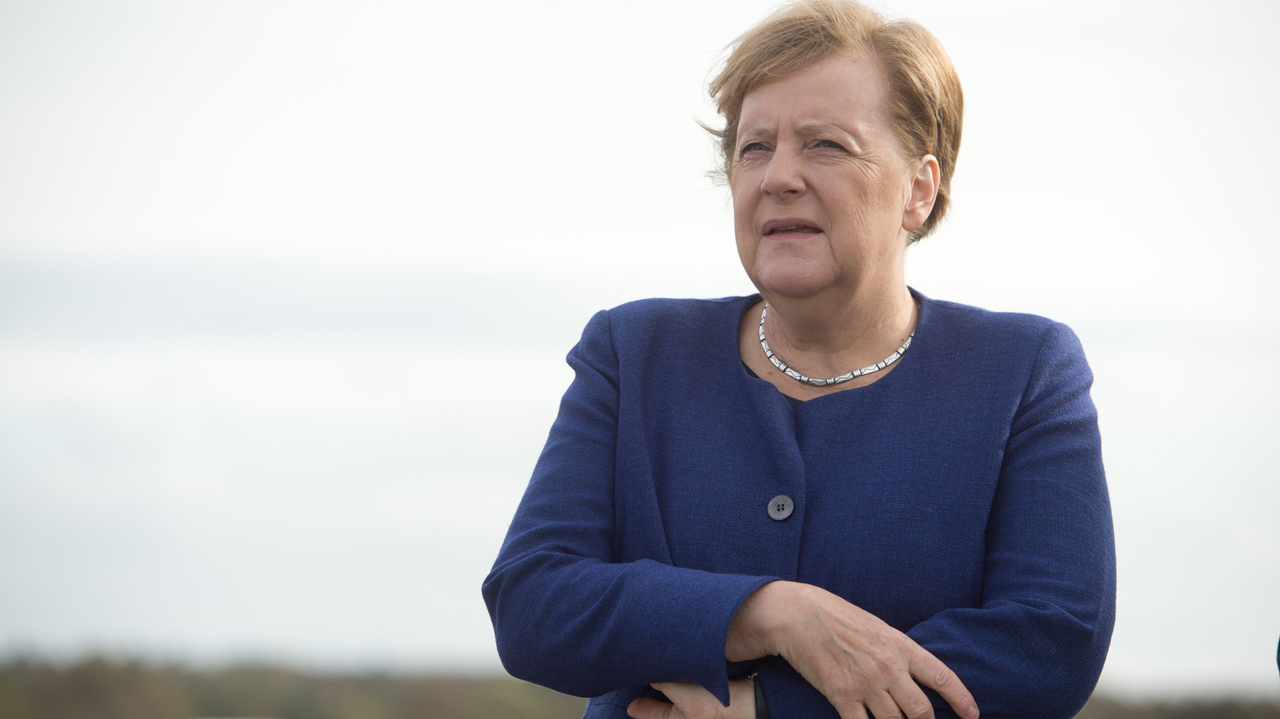
The idea offered by the politician who hopes to succeed Merkel in 2021, Defence Minister Annegret Kramp-Karrenbauer, once more throws a spotlight on Germany’s struggle to define its role as a player on the world stage.
The political row started when Kramp-Karrenbauer, who heads Merkel’s Christian Democrats (CDU) and is widely known simply as “AKK”, early last week proposed her plan for a blue-helmet mission in northern Syria.
Such a force would support the fight against the Islamic State jihadist group and help protect Kurds there after the withdrawal of US special forces opened the way for a Turkish cross-border invasion, she suggested.
The idea immediately drew fire as a half-baked plan that had not been cleared with Germany’s NATO allies, or even discussed with junior coalition partner the Social Democrats (SPD).
While it was being hotly debated in Berlin, Turkey and Russia, the main backer of President Bashar al-Assad’s regime, signed a ceasefire deal.
The German spat reached a climax when Foreign Minister Heiko Maas of the SPD reasserted his role as the chief of German diplomacy and travelled to Ankara to publicly slap down AKK’s musings about a peacekeeping mission.
Standing next to Turkish Foreign Minister Mevlut Cavusoglu, Maas coldly dismissed the idea, saying that “everywhere we are told that this is not a realistic proposal”.
In their talks, Maas said, there had been no time to discuss “things of a theoretical character … because the people of Syria lack the time for theoretical debates”.
– ‘Against German interests’ –
CDU foreign policy expert Norbert Roettgen quickly fired back, labelling Maas’ appearance “an embarrassing moment for German foreign policy”, in comments to the Funke newspaper group.
“While Turkey launches an invasion of Syria in defiance of international law,” Roettgen fumed, “the German foreign minister travels to Turkey to confirm that an international security zone under a UN mandate instead of Turkish occupation is not a good idea.”
The CDU’s economy ministry senior official Thomas Bareiss told business daily Handelsblatt that “what the foreign minister did not only contravenes diplomatic custom, it is also tactless and against German interests”.
On Sunday, Merkel spoke by phone with Turkish President Recep Tayyip Erdogan, presumably to bring clarity to the issue.
However, her office said only that “the two discussed the current situation with regard to northeastern Syria. They agreed to remain in close contact on this issue.”
Germany has long been criticised by its Western allies for its relative reluctance to send combat troops abroad, a legacy of its dark Nazi past which sparked a strong pacifist post-war tradition.
Many leaders, among them AKK, have pledged in recent years that Germany will play a greater security role and also step up spending on its military, which remains hobbled by frequent equipment failures.
– Gaffes and blunders –
AKK, in launching her surprise plan, argued that the security vacuum left in northern Syria must not be filled by the forces of Assad, Russia and Turkey.
The plan quickly looked like a non-starter, with the United States making clear it would not participate, and the German government divided on a mission that would require parliamentary approval.
The squabble is symptomatic of the divisions that have hobbled Merkel’s coalition, an unhappy marriage that was forged in 2018, half a year after both Merkel’s conservatives and the SPD suffered stark election losses.
It comes ahead of a December deadline by which the Social Democrats plan to review whether to stay in the coalition government or walkout, which would likely trigger early elections.
As Merkel looks to leave politics at the end of her fourth term in 2021, AKK has been at pains to boost her profile but has suffered through a series of gaffes and blunders that could strengthen more conservative rivals.
After Syria spat, AKK faces more headwinds. The latest survey ranking the top ten most popular German politicians placed her at the bottom of the pack.



